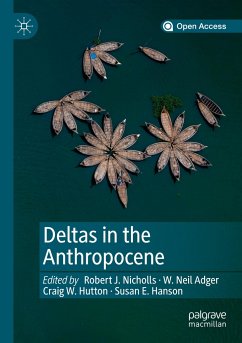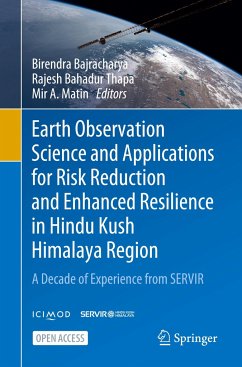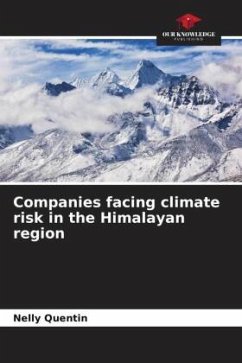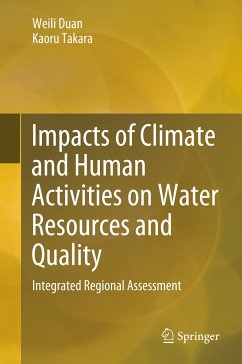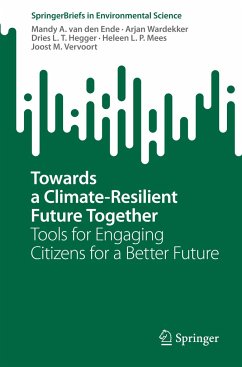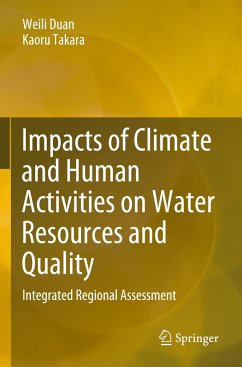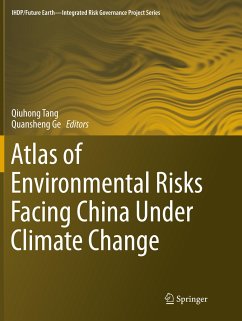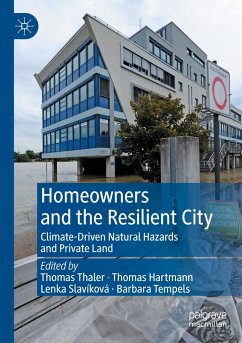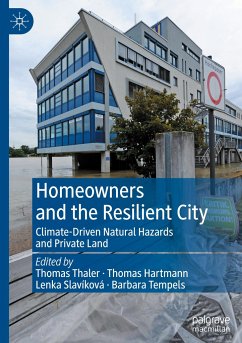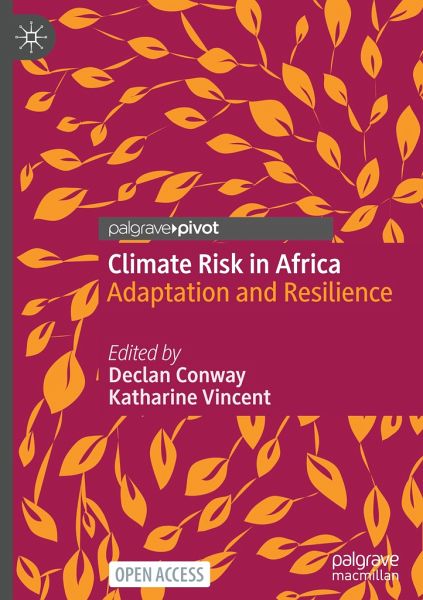
Climate Risk in Africa
Adaptation and Resilience
Herausgegeben: Conway, Declan; Vincent, Katharine
Versandkostenfrei!
Versandfertig in 6-10 Tagen
38,99 €
inkl. MwSt.

PAYBACK Punkte
19 °P sammeln!
This open access book highlights the complexities around making adaptation decisions and building resilience in the face of climate risk. It is based on experiences in sub-Saharan Africa through the Future Climate For Africa (FCFA) applied research programme. It begins by dealing with underlying principles and structures designed to facilitate effective engagement about climate risk, including the robustness of information and the construction of knowledge through co-production. Chapters then move on to explore examples of using climate information to inform adaptation and resilience through e...
This open access book highlights the complexities around making adaptation decisions and building resilience in the face of climate risk. It is based on experiences in sub-Saharan Africa through the Future Climate For Africa (FCFA) applied research programme. It begins by dealing with underlying principles and structures designed to facilitate effective engagement about climate risk, including the robustness of information and the construction of knowledge through co-production. Chapters then move on to explore examples of using climate information to inform adaptation and resilience through early warning, river basin development, urban planning and rural livelihoods based in a variety of contexts. These insights inform new ways to promote action in policy and praxis through the blending of knowledge from multiple disciplines, including climate science that provides understanding of future climate risk and the social science of response through adaptation.
The book will be of interest to advanced undergraduate students and postgraduate students, researchers, policy makers and practitioners in geography, environment, international development and related disciplines.
The book will be of interest to advanced undergraduate students and postgraduate students, researchers, policy makers and practitioners in geography, environment, international development and related disciplines.






